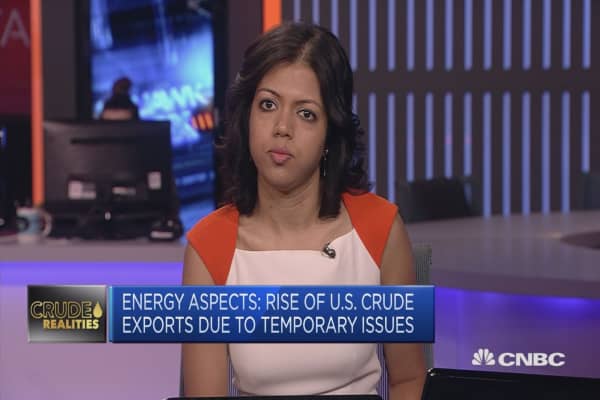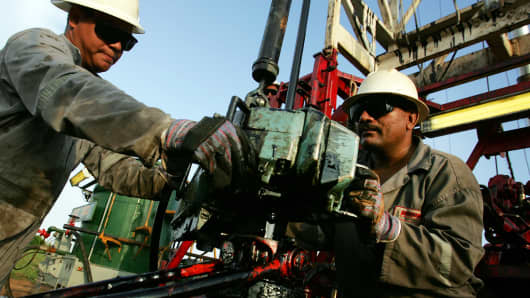Low oil price era is ‘dead’ as crisis-stricken Venezuela risks a supply shock, analyst says – The “lower for longer” oil price mantra is doomed, one oil analyst told CNBC Tuesday, amid heightened energy market fears of an imminent supply shock – Crude oil price crisis Venezuela supply shock - Arhive
Crude oil price crisis Venezuela supply shock Crude oil price crisis Venezuela supply shock Crude oil price crisis Venezuela supply shock Crude oil price crisis Venezuela supply shock Crude oil price crisis Venezuela supply shock Crude oil price crisis Venezuela supply shock Crude oil price crisis Venezuela supply shock
Low oil price era is ‘dead’ as crisis-stricken Venezuela risks a supply shock, analyst says
- Prices in the oil market have been steadily rising since last year, with global benchmark Brent rising toward $80 a barrel Tuesday.
- “I think the whole ‘lower for longer’ thesis is probably dead for a while,” Amrita Sen, chief oil analyst at Energy Aspects, told CNBC’s “Squawk Box Europe” Tuesday.
- Venezuela’s President Nicolas Maduro is almost entirely dependent on crude sales in order to try to decelerate the country’s spiraling economic and social crises.
CNBC.com
The “lower for longer” oil price mantra is doomed, one oil analyst told CNBC Tuesday, amid heightened energy market fears of an imminent supply shock.
Prices in the oil market have been steadily rising since last year, with global benchmark Brent rising toward $80 a barrel Tuesday. An upswing in crude futures has largely been driven by OPEC-led production cuts and robust global demand. Yet, more recently, oil prices have rallied faster-than-expected due to elevated geopolitical tensions.
“I think the whole ‘lower for longer’ thesis is probably dead for a while,” Amrita Sen, chief oil analyst at Energy Aspects, told CNBC’s “Squawk Box Europe” Tuesday.
“We’re looking at such a big potential disruption on the horizon … So the risk that you could lose such a big volume of crude oil exports from the market is what is keeping prices ticking higher,” she added.
Venezuela poses ‘a bigger risk’ than Iran
Sen joins a chorus of analysts warning about further price spikes amid the combined impact of falling crude output in crisis-stricken Venezuela, renewed U.S. sanctions on Iranian crude exports and wars in Syria and Yemen that involve major oil-producing countries.
Last week, Pulitzer Prize-winning author and closely followed energy analyst, Dan Yergin, said he was particularly concerned about Venezuela — where the fundamentals of the oil market and geopolitics are both at play.
The Latin American country held disputed presidential elections on Sunday, in which socialist incumbent President Nicolas Maduro secured another six-year term in office. The vote, dismissed as a “sham” by the U.S. and several other global players, prompted President Donald Trump‘s administration to place fresh sanctions on Caracas on Monday.
When asked whether she also believed supply disruption from Venezuela constituted a greater risk than the potential impact of looming U.S. sanctions against Iran, Sen replied: “I think Venezuela is a bigger risk. Their exports now are barely 1.1 million barrels per day.”
“The U.S. came out with more sanctions overnight, not necessarily directly on oil, but again it just cripples their industry more and more. No major wants to operate there because they don’t have personnel, equipment … it’s a shambles.”
Spiraling crises
The latest move to add further sanctions against Venezuela is an attempt to block Maduro from selling off government debt to enrich himself less than 24 hours after he claimed victory in the election. Maduro’s leftist administration is almost entirely dependent on crude sales in order to try to decelerate its spiraling economic and social crises.
Meanwhile, the country’s state oil company, PDVSA, is also battling mounting problems after it recently lost control of its refining and storage assets in the Caribbean to U.S. exploration and production company, ConocoPhillips.


